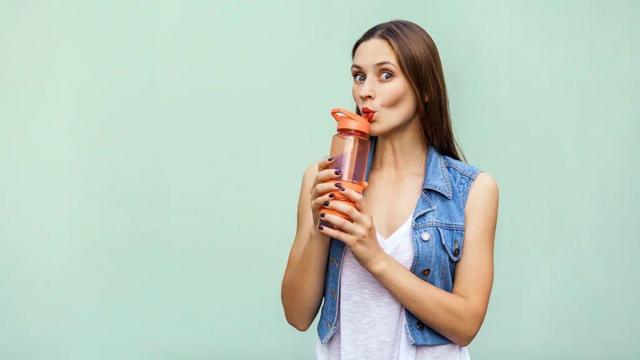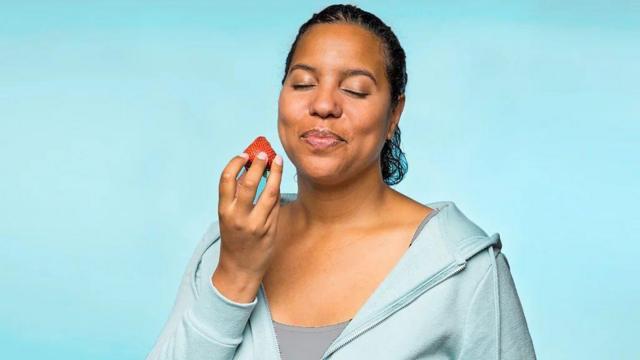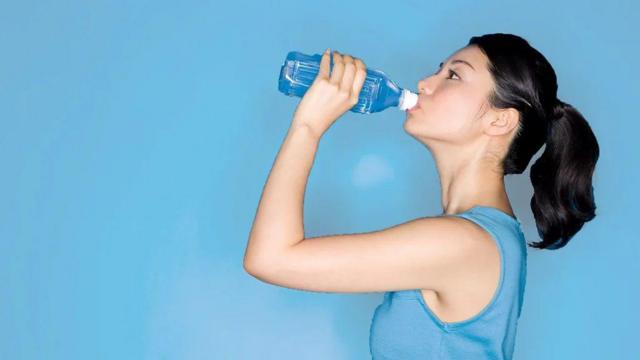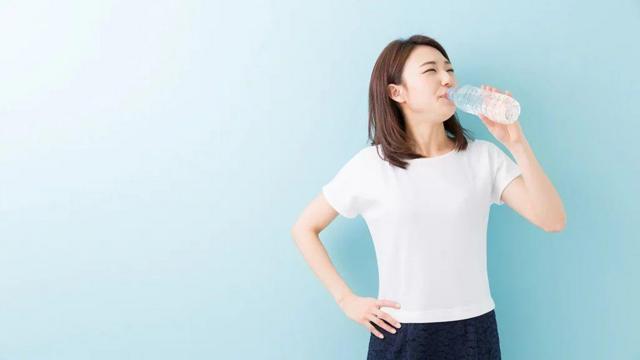We are often advised to drink more water. And when tired, and when the skin is too dry. But this advice is many years old. Does it have a scientific basis?
At the beginning of the 19th century, a lot of water was given to those who were at death. As the father of hydrotherapy (hydrotherapy) Vincenz Prisnitz wrote, only those who were on the verge of complete exhaustion were allowed to quench their thirst.
Many never drank more than half a pint (0.28 L) of plain water at a time, he added.
How things have changed. Adults in Britain are consuming more water today than in previous years, and in the US, sales of bottled drinking water have surpassed sales of soda.
We were also bombarded with revelations that, they say, by drinking a certain number of liters of water every day, we open the secret door to good health. That it gives us more energy, improves skin condition, helps us lose weight and avoid cancer.
In London, those who use the subway every day are advised to always carry a bottle of water with them. Students are advised to bring water to class. And office meetings are rarely complete without a bottle of water in the center of the table.

PHOTO CREDIT: GETTY IMAGES image captionMany people believe they should drink at least eight glasses of water every day
Appetite for water is fueled by an unofficial rule: drink eight glasses (about two liters) a day, and without taking into account other drinks.
This "rule", however, is not supported by scientific research - neither the British nor the pan-European official recommendations say that we should drink so much.
Where did it come from? Most likely, from a misinterpretation of two different instructions compiled decades ago.
In 1945, the US Food and Nutrition Board of the National Research Council recommended that adults consume one milliliter of fluid for each recommended calorie intake—equal to two liters for women on a 2,000-calorie diet and two and a half liters for men on a 2,500-calorie diet .
Let's emphasize: it was not just about water, but about any drink. And also about fruits and vegetables, which consist of up to 98% water.

PHOTO CREDIT: GETTY IMAGES image captionThe recommendations that some like to cite weren't really just about pure water
According to the latest research, eight glasses of water a day is more than our body needs. Now, based on a large-scale study, scientists advise drinking 1.5-1.8 liters every day.
In fact, each person has their own exact daily water rate. For example, those who live in hot and humid climates, in the highlands, as well as athletes, pregnant women and breastfeeding mothers, need more water.
In addition, the book "Nutrition for Good Health," written in 1974 by nutritionists Margaret McWilliams and Frederick Ster, advises the average adult to drink six to eight glasses of water a day.
However, it can include fruits and vegetables, coffee and sodas, the authors wrote.
And even beer.
We rely on thirst
Of course, water is important. The human body consists of two-thirds of it. Water carries nutrients through it and removes impurities, regulates body temperature, plays the role of lubricant and protects joints from excessive stress. Water takes part in most of the chemical reactions inside our body.
We constantly lose water through sweat, urination and breathing. Providing your body with a sufficient amount of water is a correct task.
Symptoms of dehydration appear when we lose 1-2% of the fluid in our body, and until we replenish this loss, our condition will worsen. In rare cases, it even leads to death.
However, the unreasonable rule of eight glasses a day has made us believe that thirst means that our body is dangerously dehydrated.
However, most experts agree that we do not need more water than our body requires.
"Control over hydration is one of the most complex mechanisms that the human body has developed in the course of evolution. (..) We have a huge number of sophisticated ways to maintain the right level of hydration," says Irwin Rosenberg from the Laboratory of Neurology and Aging at Tufts University in Massachusetts.

PHOTO BY GETTY IMAGES
In a healthy body, the brain detects when the body starts to become dehydrated and creates a feeling of thirst so that we start drinking. In addition, it sends a hormone into the body that signals the kidneys to conserve moisture, increasing the concentration of urine.
"If you listen to your body, it will give you the signal to drink," explains Courtney Kipps, a sports doctor-consultant and teacher, medical director of triathlon competitions in London and Blenheim.

PHOTO CREDIT: BBC/GETTY IMAGES Image caption Water is the healthiest option, but tea, coffee and even alcoholic drinks also help to avoid dehydration
Water does not contain extra calories, so it is the healthiest option, but other drinks also help with hydration (including tea and coffee).
Caffeine has mild diuretic properties, but studies show that both coffee and tea (and alcoholic beverages) promote hydration.
Drink for health
There isn't enough evidence that drinking more water than your body needs has any benefits or helps you avoid dehydration.
However, research suggests that there are important benefits to avoiding even the early stages of mild dehydration.
For example, several experiments have shown that drinking enough water to prevent moderate dehydration helps support brain function and the ability to perform simple tasks.
A 2023 study found that proper fluid intake can also slow aging and help prevent chronic diseases such as heart and lung disease.

PHOTO BY GETTY Image caption Mild dehydration is quite common and many people don't even notice it
Brenda Davey, a professor at Virginia Polytechnic Institute and State University, has conducted several studies on this topic.
In one, she divided the participants into two groups. Both followed a healthy diet for three months, but members of one were asked to drink 500 ml of water half an hour before meals. As a result, this group lost more kilograms than the other group.
Members of both groups were also asked to walk 10,000 steps a day, and those who drank water did better on the task.
Davey speculates that this was because mild dehydration (1-2%) is quite common and many people don't even experience it. But even this degree can affect our mood and energy level in the body.
What exactly does dehydration look like?
This is a condition in which you lose more fluid than you take in.
The need to restore balance is indicated by certain symptoms: fatigue, dizziness, dry eyes, mouth and lips, as well as strong thirst.
You should also pay attention to infrequent urination (less than four times a day) and dark yellow urine.
But the most common symptom of dehydration is a simple feeling of thirst.
Barbara Rolls, professor of intensive care medicine at University College London, believes that any weight loss attributed to water consumption is most likely due to the fact that plain water is being substituted for sugary drinks.
"Drinking water by itself is quickly removed from the stomach," she notes. "But if you consume more water with a meal (such as a soup), it helps you feel full because then the water stays with the food in your stomach for longer."
Another potential benefit of drinking more water is improved skin tone and hydration. However, there is still insufficient scientific evidence for this.
Is too much bad?
Those of us who strive to drink eight glasses of water a day are doing ourselves no harm. But believing that we need to drink more than our bodies are signaling can lead us into dangerous territory.
Excessive fluid intake sometimes causes a decrease in sodium concentration in the blood. This can lead to swelling of the brain and lungs as the body tries to restore sodium levels.

PHOTO BY BBC/GETTY Photo caption We rarely think about it, but too much fluid is also dangerous for the body
In the past ten years, Courtney Kipps has witnessed at least 15 athletes die from overhydration during sports competitions.
She believes that such cases are partly the result of our disbelief in our own body, its ability to self-regulate.
"Nurses and doctors in hospitals see patients whose body is severely dehydrated, who have been without water for a long time. But this is not at all what happens to marathon athletes," she emphasizes.
Joanna Pakenham ran the London Marathon in 2018, which was the hottest ever. However, she simply does not remember most of the distance, because she drank so much water that she developed overhydration, hyponatremia. On the same day, she was taken to the hospital.
“My friend and my partner thought I was dehydrated and gave me a huge glass of water. I froze, my heart stopped. I was taken by helicopter to the hospital, and I remained unconscious from Sunday evening until Tuesday," she recalls.
Pakenham, who plans to run the marathon again this year, says the only advice she heard from friends and read on marathon posters was to drink more water.
“But all I needed was a few electrolyte tablets, which raise sodium levels in the blood. I was a participant in several marathons, but I didn't know this," she says.
"I want people to know that even something so simple can be deadly."
So how much?
"In the most extreme heat in the middle of the desert, the maximum that a person can sweat out of the body is two liters per hour, but this is difficult to achieve," says Hugh Montgomery, director of research at the Institute for Sport, Exercise and Health. in London.
“Regarding the idea of always carrying a half liter bottle of water with you for a 20 minute journey on the London Underground - you'll never get hot enough to need all that water. Even if you sweat like a hailstorm."
And for those who like to follow official recommendations, here is the advice of experts from the British National Health System: drink six to eight glasses of liquid a day, including low-fat milk and sugar-free drinks, including tea and coffee.

PHOTO AUTHOR, GETTY Photo caption Experts from the British National Health System advise drinking six to eight glasses of liquid a day, including coffee or tea (but unsweetened)
In addition, it is important to remember that the thirst mechanism in our body begins to lose sensitivity after the age of 60. In 2022, scientists published the results of a study showing that the symptoms of dehydration can often be overlooked.
"Over the years, our natural thirst mechanism becomes less sensitive. We are more prone to dehydration than in our youth. As we age, we need to be more careful about fluid intake to avoid dehydration," says Davey.
Most experts agree that our need for fluids depends on age, weight, gender, as well as the state of the environment and level of physical activity.
"One of the mistakes of the eight-glass rule is to oversimplify how our bodies respond to the environment we're in," says Rosenberg.
In 2022, scientists from the University of Aberdeen, in Scotland, found out that the recommended norm of two liters of water per day may be excessive.
Scottish scientists point out that a person consumes about half of the daily norm of liquid with food, so it is not necessary to drink so much pure water. They advise consuming 1.5-1.8 liters daily.
The study involved 5,604 people from 23 countries aged from eight days to 96 years.
Scientists have found that those who live in hot and humid conditions, in the highlands, as well as athletes, pregnant women and breastfeeding mothers, need to drink more water than others. In fact, the most important indicator of how much water a person needs is how much energy they burn.
Most experts agree that you shouldn't worry too much about how much water you drink each day.
At the right moment, our body will send a signal in the form of thirst. The way he does it when we are hungry or tired.
The only thing that can be good for your health when you drink more water than you need is that you burn extra calories by going to the bathroom more often.

